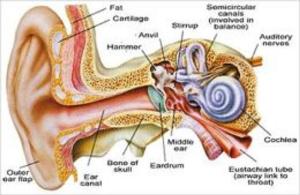Combat Stuttering (Tips & Tricks to Help Combat Stuttering)
Nonfiction, Health & Well Being, Health, Ailments & Diseases, Hearing| Author: | Desmond Gahan | ISBN: | 9781386336723 |
| Publisher: | Desmond Gahan | Publication: | June 8, 2017 |
| Imprint: | Language: | English |
| Author: | Desmond Gahan |
| ISBN: | 9781386336723 |
| Publisher: | Desmond Gahan |
| Publication: | June 8, 2017 |
| Imprint: | |
| Language: | English |
What is stuttering?
Stuttering affects the fluency of speech. It begins during childhood and, in some cases, lasts throughout life. The disorder is characterized by disruptions in the production of speech sounds, also called "disfluencies." Most people produce brief disfluencies from time to time. For instance, some words are repeated and others are preceded by "um" or "uh." Disfluencies are not necessarily a problem; however, they can impede communication when a person produces too many of them.
In most cases, stuttering has an impact on at least some daily activities. The specific activities that a person finds challenging to perform vary across individuals. For some people, communication difficulties only happen during specific activities, for example, talking on the telephone or talking before large groups. For most others, however, communication difficulties occur across a number of activities at home, school, or work. Some people may limit their participation in certain activities. Such "participation restrictions" often occur because the person is concerned about how others might react to disfluent speech. Other people may try to hide their disfluent speech from others by rearranging the words in their sentence (circumlocution), pretending to forget what they wanted to say, or declining to speak. Other people may find that they are excluded from participating in certain activities because of stuttering. Clearly, the impact of stuttering on daily life can be affected by how the person and others react to the disorder.
What are signs and symptoms of stuttering?
Stuttered speech often includes repetitions of words or parts of words, as well as prolongations of speech sounds. These disfluencies occur more often in persons who stutter than they do in the general population. Some people who stutter appear very tense or "out of breath" when talking. Speech may become completely stopped or blocked. Blocked is when the mouth is positioned to say a sound, sometimes for several seconds, with little or no sound forthcoming. After some effort, the person may complete the word.
What is stuttering?
Stuttering affects the fluency of speech. It begins during childhood and, in some cases, lasts throughout life. The disorder is characterized by disruptions in the production of speech sounds, also called "disfluencies." Most people produce brief disfluencies from time to time. For instance, some words are repeated and others are preceded by "um" or "uh." Disfluencies are not necessarily a problem; however, they can impede communication when a person produces too many of them.
In most cases, stuttering has an impact on at least some daily activities. The specific activities that a person finds challenging to perform vary across individuals. For some people, communication difficulties only happen during specific activities, for example, talking on the telephone or talking before large groups. For most others, however, communication difficulties occur across a number of activities at home, school, or work. Some people may limit their participation in certain activities. Such "participation restrictions" often occur because the person is concerned about how others might react to disfluent speech. Other people may try to hide their disfluent speech from others by rearranging the words in their sentence (circumlocution), pretending to forget what they wanted to say, or declining to speak. Other people may find that they are excluded from participating in certain activities because of stuttering. Clearly, the impact of stuttering on daily life can be affected by how the person and others react to the disorder.
What are signs and symptoms of stuttering?
Stuttered speech often includes repetitions of words or parts of words, as well as prolongations of speech sounds. These disfluencies occur more often in persons who stutter than they do in the general population. Some people who stutter appear very tense or "out of breath" when talking. Speech may become completely stopped or blocked. Blocked is when the mouth is positioned to say a sound, sometimes for several seconds, with little or no sound forthcoming. After some effort, the person may complete the word.















